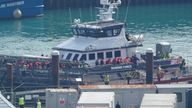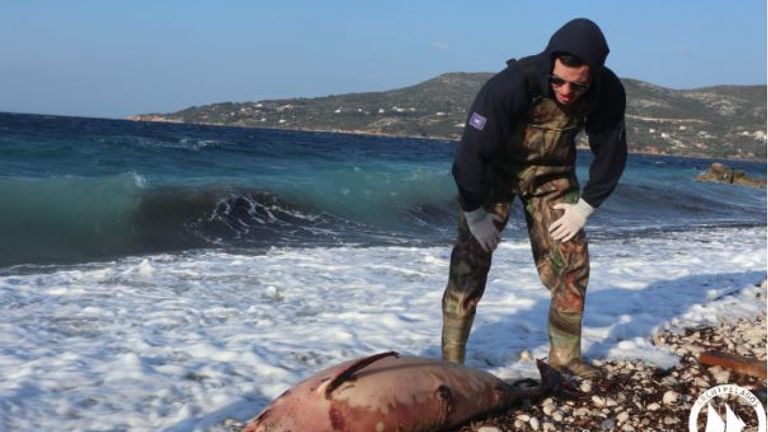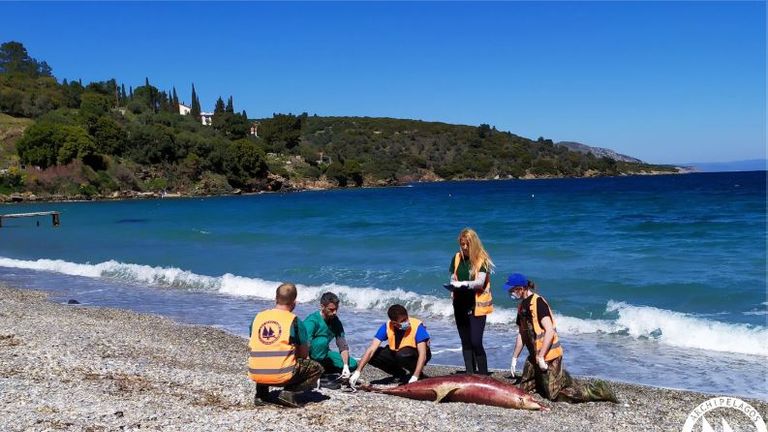'Worrying' increase in dolphin deaths off Greece may have been caused by Turkish navy drill
Between 27 February and 8 March, Turkey's navy staged an exercise which involved 103 vessels using sonar and live ammunition.
Monday 8 April 2019 21:19, UK
Scientists worried about an increase in dolphin deaths off the coast of Greece say a major exercise by Turkey's navy could be to blame.
At least 15 dead dolphins have been recorded in the Aegean Sea since the end of February and seven of them were found on the northern coast of Samos, according to a Greek conservation group.
The Archipelagos Institute of Marine Conservation said there was no sign of deliberate killing or serious illness among the dolphins.
But the Turkish navy may have unknowingly played a part.
Between 27 February and 8 March, the navy staged its largest exercise which involved 103 vessels using sonar and live ammunition.
Sonar, used by warships to find submarines, is deafening to dolphins and their desperation to escape the noise can result in them surfacing too fast or beaching themselves.
The institute also said that even the smallest explosion at sea can kill millions of organisms.
The institute's head of research Anastassia Miliou said: "We can't say that the Turkish exercises killed the dolphins, but the fact that we had such an unusual increase in the number washed up dead - and what we have seen must be a small percentage of the total because the Aegean has a long coastline - coincided with exercises that used more than 100 ships.
"[The deaths] are very worrying and we can't say that the two events are unrelated."
During the same period last year there had been only one or two deaths, she said.
A similar situation with whale deaths prompted NATO to adopt a code of conduct for sonar use.
The guidelines try to make sure sonar is not so dangerous for marine mammals.
It is not known whether Turkey, a NATO member, was adhering to these guidelines, however.
Ms Miliou said the NATO guidelines are used by the navies of Greece and the US, both of whom have a presence in the area, adding: "There's a new [military] generation in place that doesn't want to harm the environment in the name of national sovereignty."
The institute called for the Greek government to raise the issue with the Turkish government, as new exercises are planned for the future.
"A common goal should not only be to secure our national sovereignty, but also to safeguard our national integrity, as it is not possible to destroy our natural resources intentionally or unintentionally during the exercises in time of peace," it said.
Ms Miliou said the Aegean was already struggling to handle pollution, over-fishing and heavy marine traffic.
"With these giant exercises... strain is placed on the entire marine ecosystem, including fish and plankton, because [they] cause intense noise pollution from which marine life can't escape," she said.





